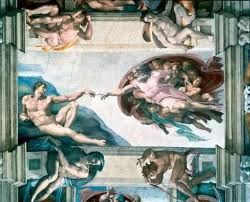“Punting the Pundits” is an Open Thread. It is a selection of editorials and opinions from around the news medium and the internet blogs. The intent is to provide a forum for your reactions and opinions, not just to the opinions presented, but to what ever you find important.
Thanks to ek hornbeck, click on the link and you can access all the past “Punting the Pundits”.
Follow us on Twitter @StarsHollowGzt
Paul Krugman: The Blackmail Caucus
If President Obama is re-elected, health care coverage will expand dramatically, taxes on the wealthy will go up and Wall Street will face tougher regulation. If Mitt Romney wins instead, health coverage will shrink substantially, taxes on the wealthy will fall to levels not seen in 80 years and financial regulation will be rolled back.
Given the starkness of this difference, you might have expected to see people from both sides of the political divide urging voters to cast their ballots based on the issues. Lately, however, I’ve seen a growing number of Romney supporters making a quite different argument. Vote for Mr. Romney, they say, because if he loses, Republicans will destroy the economy.
O.K., they don’t quite put it that way. The argument is phrased in terms of “partisan gridlock,” as if both parties were equally extreme. But they aren’t. This is, in reality, all about appeasing the hard men of the Republican Party.
Bruce A. Dixon: Is This Really The Most Important Election Ever? If So, Then Where Are Our Issues?
It’s hard to see how an election is so darn important for black America when the candidates aren’t talking about the issues. Which one is the candidate that wants to roll back the prison state, or stop the drug war, or question gentrification? Is there a candidate who wants full funding of public education? A candidate who will cut off troops and military aid to Africa? If not, what are we voting for? [..]
The current black political class, and its array of candidates from the president down do not believe in social justice. There are big problems, but they fear big and truthful answers. They don’t want to roll back the prison state. They just want to stick around awhile longer. They want to be on TV and collect honorariums. They don’t know how to address joblessness or gentrification. That’s your issue. They just know how to get paid.
Junk bonds – debt issued by companies with low credit ratings – are growing junkier by the day, with ever weaker companies issuing bonds for ever riskier purposes. The bonds’ falling quality and rising risk, described recently in The Times by Nathaniel Popper, show gaps in investor protection. They also revive concerns about how private equity owners of companies that issue the bonds are using that money. [..]
No one is predicting that today’s increasingly risky junk bonds will blow up anytime soon. But risky business, unchecked, has a way of doing so eventually.
Timothy Egan: Nature Votes Last
A catastrophic storm has no feelings, no fury, no compassion and certainly no political position. Hurricanes may sound like bridge partners at the Boca community center – Sandy, Irene and Katrina – until they land and become monsters. The mistake, perhaps, is trying to anthropomorphize them.
But that doesn’t mean that a fatal blow from Mother Nature will not alter the course of human nature. When the seas rose earlier this week, swamping the world’s greatest city and battering a helpless state, the turbulence of the elements washed away the sand castles of politics.
Ralph Nader: Waiting for Obama, Democrats Will Lose the House
Will the Congressional Democrats recover the House of Representatives from the clutches of the cruelest, most corporately monetized, anti-people Republican Party since 1858? Amazingly, the answer, less than a week before the election, is no, according to veteran House Democrats, pollsters and the Washington D.C. punditry. In fact, that negative prediction has been consistent for at least 8 months.
Two more years of Reps. John Boehner, Eric Cantor and their gang blocking Barack Obama (if he gets elected), should he want to champion any significant legislation. Why can’t the Democrats landslide these Republicans as FDR, Harry Truman, John F. Kennedy, Lyndon Baines Johnson would surely havev done?
The answers lie in the grotesque unmentioned ways that the incumbent Democrats have tied themselves up in knots that spell centralized paralysis. The following highlights how they have made themselves dysfunctional.
Suevon Lee: Where Romney and Obama Stand on the Supreme Court: A Guide
The Supreme Court has remained a largely unspoken topic on the campaign trail – even though the Court plays a critical function in Americans’ lives. (This past June’s Affordable Care Act ruling, anyone?)
The next president could very well appoint one or two new justices. And who steps down first could also depend on who’s elected. [..]
Legal challenges to such key social issues as same-sex marriage, gun rights, immigration and separation of church and state are likely to be heard by the Supreme Court in the coming years. One justice is all it may take to tip the scale in these cases.
So what exactly have the candidates said, and why hasn’t the Supreme Court been a bigger issue? Let’s take a look.

 After departing Brest, Jones successfully executed raids on two forts in England’s Whitehaven Harbor, despite a disgruntled crew more interested in “gain than honor.” Jones then continued to his home territory of Kirkcudbright Bay, Scotland, where he intended to abduct the earl of Selkirk and then exchange him for American sailors held captive by Britain. Although he did not find the earl at home, Jones’ crew was able to steal all his silver, including his wife’s teapot, still containing her breakfast tea. From Scotland, Jones sailed across the Irish Sea to Carrickfergus, where the Ranger captured the HMS Drake after delivering fatal wounds to the British ship’s captain and lieutenant.
After departing Brest, Jones successfully executed raids on two forts in England’s Whitehaven Harbor, despite a disgruntled crew more interested in “gain than honor.” Jones then continued to his home territory of Kirkcudbright Bay, Scotland, where he intended to abduct the earl of Selkirk and then exchange him for American sailors held captive by Britain. Although he did not find the earl at home, Jones’ crew was able to steal all his silver, including his wife’s teapot, still containing her breakfast tea. From Scotland, Jones sailed across the Irish Sea to Carrickfergus, where the Ranger captured the HMS Drake after delivering fatal wounds to the British ship’s captain and lieutenant.
 Houdini was born Erik Weisz in Budapest in 1874, the son of a rabbi. At a young age, he immigrated with his family to Appleton, Wisconsin, and soon demonstrated a natural acrobatic ability and an extraordinary skill at picking locks.
Houdini was born Erik Weisz in Budapest in 1874, the son of a rabbi. At a young age, he immigrated with his family to Appleton, Wisconsin, and soon demonstrated a natural acrobatic ability and an extraordinary skill at picking locks. The eyewitnesses, students named Jacques Price and Sam Smilovitz (sometimes called Jack Price and Sam Smiley), proferred accounts of the incident that generally corroborated one another. The following is Price’s description of events:
The eyewitnesses, students named Jacques Price and Sam Smilovitz (sometimes called Jack Price and Sam Smiley), proferred accounts of the incident that generally corroborated one another. The following is Price’s description of events:
Recent Comments